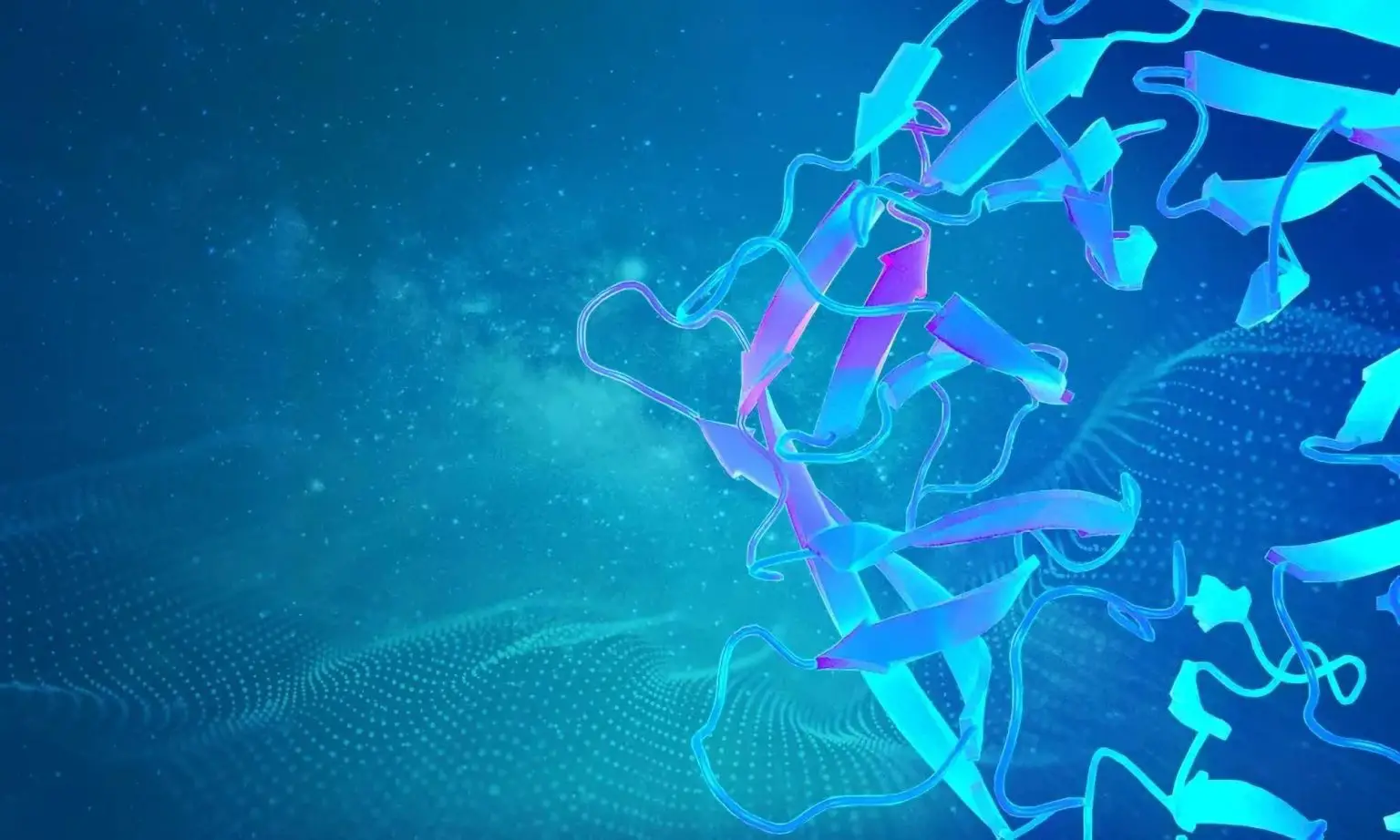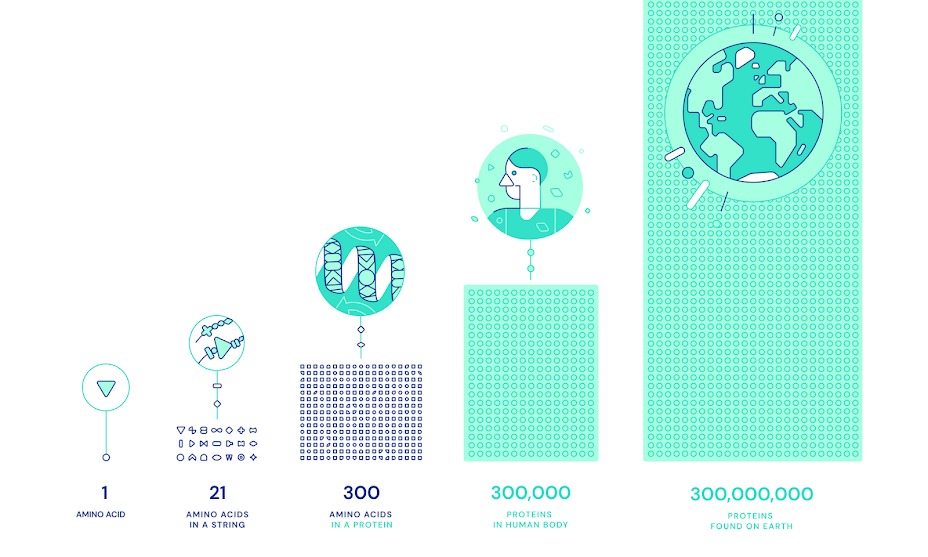AlphaFold: Decoding Life's Enigma with AI and Deep Learning
 Turin
TurinTable of contents
- Protein Folding: A Pinnacle Challenge in Biology
- Challenges at a Glance:
- "This will be one of the most important datasets since the mapping of the Human Genome."
- How does it work?
- "We have been stuck on this one problem – how do proteins fold up – for nearly 50 years. To see DeepMind produce a solution for this, having worked personally on this problem for so long and after so many stops and starts, wondering if we’d ever get there, is a very special moment."

In the ever-evolving realm of scientific breakthroughs, AlphaFold stands as a transformative force assured to unravel the mysteries of life itself. AlphaFold, with its incredible ability to predict protein structures, is reshaping our understanding of biology and medicine. Join us on a journey to explore how AlphaFold is unfolding life's greatest mysteries.
Protein Folding: A Pinnacle Challenge in Biology
Imagine a long string made up of tiny beads, where each bead is a different color. Now, to make something useful out of this string, you need to arrange the beads in a specific 3D shape. This process of arranging the beads in the right order and shape is similar to what proteins do with their building blocks (amino acids) to become useful in our bodies.
Challenges at a Glance:
Super Complexity: The process of attaining the correct 3D shape from these "beads" is exceptionally intricate.
Folding Issues: Proteins occasionally misfold, contributing to diseases such as Alzheimer's. Understanding how to avert these misfolds is crucial.
Shape Guesswork: Despite significant strides, accurately predicting the 3D structure of every protein, particularly those with unique functions, remains a formidable challenge.
Decades of scientific efforts focused on devising a reliable method to deduce a protein's structure solely from its amino acid sequence, resulting in approaches like nuclear magnetic resonance and X-ray crystallography. However, these methods relied on extensive trial and error, demanded years of meticulous work, and necessitated multi-million-dollar specialized equipment. This formidable scientific challenge became widely known as the protein-folding problem.
AlphaFold's Deep Learning Marvel
AlphaFold, a pioneering deep learning system crafted by DeepMind, has emerged as a beacon in addressing the protein-folding problem. Capitalizing on the prowess of machine learning, extensive datasets, and sophisticated algorithms, AlphaFold tackles the complexities of protein folding with unparalleled efficacy.
"This will be one of the most important datasets since the mapping of the Human Genome."
PROFESSOR EWAN BIRNEY
EMBL DEPUTY DIRECTOR GENERAL AND EMBL-EBI DIRECTOR
How does it work?
Imagine you have a big bag of colorful LEGO pieces, and your task is to build a specific object using those bricks. Now, think of these LEGO pieces as the building blocks of life, called amino acids, and the object you're building as a protein – a crucial component in our bodies.
Proteins need to fold into precise shapes to work correctly, just like your LEGO creation. The problem is, figuring out how they fold is extremely complicated. Scientists have been trying to solve this puzzle for a long time.
Here's where AlphaFold comes in. It's like a super-smart LEGO builder. It has learned from looking at lots and lots of examples (like having a massive collection of completed LEGO models) to predict how proteins will fold based on their amino acid sequences.
AlphaFold uses its knowledge to make accurate guesses about the 3D shapes proteins will take. It's as if our LEGO builder can predict how different combinations of LEGO pieces will create specific structures. This ability is a game-changer because understanding how proteins fold helps scientists in designing medicines, exploring diseases, and unlocking the secrets of life. AlphaFold's predictions are like having a guidebook to building with LEGO – it makes the process much faster and more efficient.
By July 28, 2022, AlphaFold stated that they had broadened their database to encompass more than 200 million structures, which included nearly all the catalogued proteins known to science.

"We have been stuck on this one problem – how do proteins fold up – for nearly 50 years. To see DeepMind produce a solution for this, having worked personally on this problem for so long and after so many stops and starts, wondering if we’d ever get there, is a very special moment."
PROFESSOR JOHN MOULT
CO-FOUNDER AND CHAIR OF CASP, UNIVERSITY OF MARYLAND
Subscribe to my newsletter
Read articles from Turin directly inside your inbox. Subscribe to the newsletter, and don't miss out.
Written by
